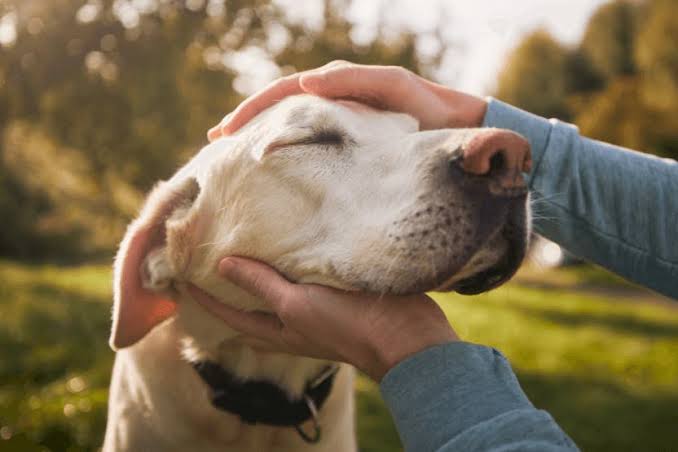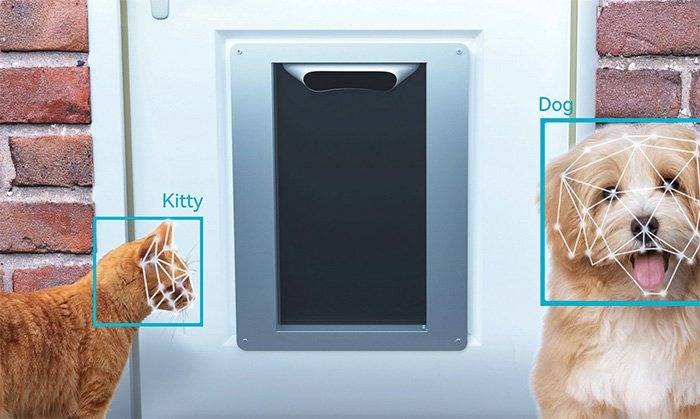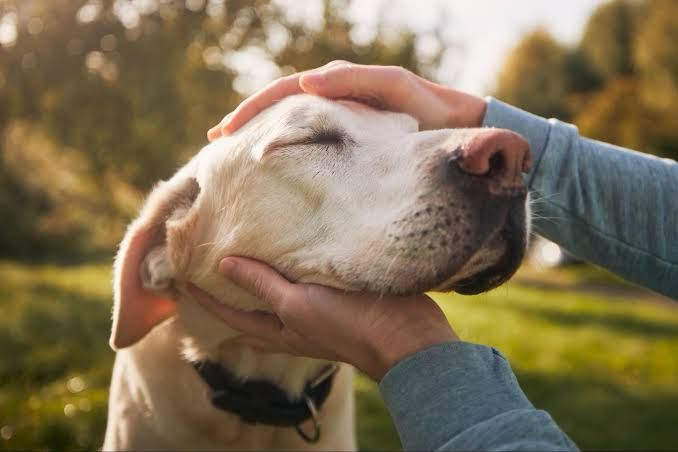
How to Care for Senior Pets: Tips for Older Dogs & Cats
Caring for senior pets requires attention to their changing physical and emotional needs. From regular vet visits and specialized diets to mobility aids and mental stimulation, every adjustment can improve their comfort and longevity. Recognizing early signs of aging, managing pain, and offering consistent affection helps senior dogs and cats thrive in their golden years. With compassion and care, you can make their final chapters peaceful, joyful, and filled with love.v
🐶 Pet Star
36 min read · 18, Jul 2025

Introduction
As pets grow older, their needs change just like humans. That energetic pup or playful kitten will eventually become a calm, slow-moving senior who may need extra care and attention. Senior pets, typically over 7 years old, are more prone to health issues such as arthritis, dental problems, vision loss, and reduced immunity.
To help them live a happy and healthy life, it’s crucial to adjust their routine, diet, and environment. In this article, we’ll explore how to properly care for older dogs and cats—covering nutrition, exercise, grooming, vet visits, comfort, and emotional support. As pets age, their needs evolve, requiring special attention to ensure their golden years are comfortable, happy, and healthy—senior dogs and cats, typically considered those over seven years old, experience gradual changes in mobility, metabolism, and sensory perception, making tailored care essential. One of the most critical aspects of senior pet care is regular veterinary check-ups, ideally every six months, to monitor age-related conditions like arthritis, dental disease, kidney dysfunction, heart disease, and cognitive decline, with bloodwork, urinalysis, and blood pressure checks helping detect issues early. Nutrition plays a pivotal role, as older pets often need high-quality, easily digestible protein to maintain muscle mass, along with adjusted calorie intake to prevent obesity (a common issue in less active seniors) or unintended weight loss, while supplements like glucosamine, chondroitin, and omega-3 fatty acids can support joint health and reduce inflammation. For pets with chronic conditions, prescription diets targeting kidney health, diabetes, or joint support may be recommended by your vet. Hydration is equally important, especially for cats prone to kidney disease, so providing fresh water and even pet fountains can encourage drinking. Mobility challenges are common in aging pets, so investing in orthopedic beds, ramps, or stairs can help them access furniture or cars more easily, while non-slip mats prevent falls on slippery floors. Gentle, low-impact exercise like short walks or interactive play maintains muscle tone and mental stimulation but should be adjusted to their energy levels—swimming can be excellent for arthritic dogs. Pain management is crucial, with veterinarians often recommending anti-inflammatory medications, physical therapy, laser treatments, or acupuncture for arthritis relief, alongside warm compresses for stiff joints. Dental health cannot be overlooked, as periodontal disease can lead to systemic infections; regular brushing, dental chews, or professional cleanings prevent pain and tooth loss. Cognitive health also declines in some seniors, with signs like disorientation, altered sleep patterns, or house-soiling signaling canine or feline cognitive dysfunction (CCD), which can be managed with brain-boosting diets, puzzle toys, and medications like seborrhea or Anipryl. Sensory decline—such as hearing or vision loss—requires pet-proofing your home by avoiding rearranging furniture and using scent markers or verbal cues to guide them. Grooming becomes more vital as older pets may struggle with self-care; regular brushing prevents matting, while gentle nail trims avoid overgrowth that can cause discomfort. Skin and coat changes, including dryness or thinning fur, may benefit from fatty acid supplements or moisturizing shampoos. Behavioral changes, such as increased anxiety or vocalization, should be addressed with patience, environmental enrichment, and, if needed, anti-anxiety medications or pheromone diffusers. Senior pets thrive on routine, so maintaining consistent feeding times, walks, and sleep schedules reduces stress. Climate sensitivity increases with age, so provide warm bedding in winter and cooling mats in summer, ensuring they’re never exposed to extreme temperatures. For cats, ensure low-sided litter boxes for easy access, and for dogs, consider pee pads or more frequent bathroom breaks if incontinence develops. Monitoring weight, appetite, and water intake helps catch health shifts early, while quality time, gentle affection, and mental engagement combat loneliness and keep their spirits high. End-of-life care, though difficult to consider, involves recognizing when quality of life declines—signs like chronic pain, loss of interest in food or interaction, or difficulty breathing may necessitate compassionate discussions with your vet about palliative care or humane euthanasia. Above all, senior pets deserve extra love and patience; adapting their environment, diet, and routines ensures they age with dignity, comfort, and joy, deepening the bond you share in their later years. By proactively addressing their changing needs, you can help your beloved companion enjoy their twilight years to the fullest—because every moment with them is precious.
Understanding the Aging Process in Pets
Aging in pets doesn’t look the same for every animal. Factors like breed, size, and genetics play a big role. For instance:
- Small dog breeds (like Chihuahuas) may be considered senior at 10–12 years
- Large breeds (like Great Danes) age faster and are considered senior by 6–7 years
- Cats typically enter their senior years around 7–10 years
Common signs of aging in pets include:
- Slower movement or reluctance to climb stairs
- Cloudy eyes or hearing loss
- Graying fur around the face
- Increased sleeping or behavioral changes
- Changes in appetite or bathroom habits
- Bad breath or dental issues
Understanding these signs helps you adapt to their evolving needs with compassion.
Nutrition for Senior Pets
Diet is the foundation of health, especially in the later years. Older pets require fewer calories but more high-quality nutrients to maintain muscle, manage weight, and support organ function.
1. Lower Calories, Higher Protein
Senior pets move less, so they burn fewer calories. Feed them a calorie-controlled, high-protein diet to preserve muscle mass.
2. Joint-Supporting Nutrients
Supplements like glucosamine, chondroitin, and omega-3 fatty acids help reduce joint inflammation and arthritis symptoms.
Sources: Fish oil, flaxseed oil, or vet-recommended supplements
3. Digestive Support
Older pets may develop sensitive stomachs or slower digestion. Add fiber-rich ingredients and probiotics to ease digestion.
Sources: Pumpkin puree, sweet potato, or digestive care pet food
4. Hydration
Senior pets are more prone to dehydration. Offer wet food or add water/broth to dry kibble to increase fluid intake.
5. Dental Health Nutrition
Dental problems are common. Choose food or treats that support oral hygiene or consult your vet for dental diets.
Exercise and Mobility for Senior Pets
Staying active keeps aging pets healthy, but their exercise needs change with age. Gentle movement helps maintain muscle tone, joint flexibility, and mental alertness.
1. Low-Impact Activities
Switch high-energy play to short walks, gentle fetch, or indoor games. Avoid high jumps or strenuous hikes.
2. Stretching and Range-of-Motion
Light stretching or massage can improve flexibility and circulation in older pets.
3. Consistency Is Key
Instead of long workouts, opt for frequent short sessions throughout the day.
4. Swimming for Dogs
If available, swimming is a perfect joint-friendly exercise for dogs with arthritis.
5. Avoid Overexertion
Never push your pet to the point of exhaustion. Monitor breathing, limping, or stiffness after activity.
Regular Vet Visits and Preventive Care
Older pets need more frequent vet attention—ideally twice a year—to catch age-related issues early.
1. Comprehensive Wellness Exams
Ask your vet for senior wellness panels that include bloodwork, urine tests, and organ checks.
2. Dental Checkups
Dental disease affects heart and kidney health. Schedule regular dental cleanings and brush their teeth at home if possible.
3. Weight Monitoring
Weight gain or loss can signal underlying health issues like diabetes or thyroid problems. Track it monthly.
4. Vaccinations and Parasite Control
Keep up with vaccines and flea/tick/heartworm preventives—senior pets may have weaker immune defenses.
5. Vision and Hearing Checks
Cataracts and hearing loss are common in aging pets. Adjust their routine to accommodate sensory changes.
Comfort and Home Modifications
Senior pets may struggle with stairs, cold floors, or hard surfaces. Simple home changes can make life easier and safer.
1. Soft, Orthopedic Bedding
Invest in orthopedic or memory foam beds to cushion sore joints and improve sleep.
2. Slip-Proof Surfaces
Use non-slip mats or rugs on slippery floors to prevent falls.
3. Easy Access to Essentials
Place food, water, and litter boxes where they can reach easily without stairs.
4. Pet Ramps or Stairs
Help your pet get onto couches or beds using pet stairs or ramps.
5. Temperature Control
Older pets are more sensitive to cold. Keep them warm in winter with blankets or heated pet beds.
Grooming and Hygiene Tips
Grooming keeps your pet clean, reduces shedding, and helps detect skin or health issues early.
1. Brushing
Regular brushing improves circulation and helps monitor lumps, bumps, or skin changes.
2. Bathing
Use gentle, senior-pet-friendly shampoos. Bathe only when necessary to avoid drying out the skin.
3. Nail Trimming
Older pets move less, so nails grow longer. Trim regularly to prevent pain or posture issues.
4. Eye and Ear Cleaning
Seniors may produce more discharge. Gently clean their eyes and ears to prevent infections.
5. Dental Hygiene
Use pet toothbrushes or dental chews to maintain oral health between vet visits.
Mental and Emotional Care
Just like humans, senior pets need mental stimulation and emotional comfort. They may also suffer from cognitive decline (like pet dementia).
1. Brain Games
Use puzzle toys, sniffing games, or treat-hiding challenges to keep their brain active.
2. Social Interaction
Keep them involved in family activities. Don't isolate them—even if they nap more often.
3. Routine and Familiarity
Stick to a predictable daily routine. Avoid moving furniture or changing surroundings suddenly.
4. Emotional Reassurance
Give them plenty of gentle affection, petting, and verbal praise. Senior pets thrive on love and connection.
5. Monitor for Cognitive Changes
If your pet starts pacing, gets lost in familiar places, or forgets routines, talk to your vet. These could be signs of Canine or Feline Cognitive Dysfunction.
Common Health Conditions in Senior Pets & Prevention Tips
Arthritis
- Prevention/Management: Maintain healthy weight, give joint supplements, low-impact exercise
Dental Disease
- Prevention: Brush teeth, use dental diets or treats, regular vet cleaning
Kidney Disease
- Prevention: Hydration, low-phosphorus diet, early detection through blood tests
Vision/Hearing Loss
- Management: Use voice cues, avoid moving furniture, add ramps or lighting
Cognitive Decline
- Prevention: Mental stimulation, omega-3s, senior-friendly supplements
Myths About Senior Pet Care: Busted!
“Old pets don’t need exercise.”
→ False. Gentle movement keeps joints, heart, and brain healthy.
“If they’re sleeping more, it’s normal.”
→ Yes and no. Increased sleep can be normal, but sudden lethargy can signal illness.
“Special food isn’t necessary.”
→ Wrong! Senior pets need different nutrients to support aging organs and prevent disease.
“It’s too late to train an older pet.”
→ Not true. Seniors can still learn new routines or habits—just be patient and consistent.
Sample Daily Routine for Senior Pet Wellness
Morning
- Short walk or indoor play (5–10 mins)
- Breakfast: Senior-specific food with joint support supplements
- Fresh water + gentle brushing
Midday
- Mental game: Food puzzle or hide-treat activity
- Bathroom/litter break
- Nap in warm, cozy area
Evening
- Light walk or cuddle session
- Dinner: Wet or soft food for hydration and easy chewing
- Quiet family time with soft praise and petting
Weekly Add-Ons
- Nail trimming
- Ear/eye cleaning
- Check for lumps, sore joints, or behavioral changes
- Add a new brain game or rotate toys
Conclusion
Caring for a senior dog or cat requires patience, compassion, and consistent attention—but the rewards are immeasurable. These loyal companions have given you their best years; now it’s your turn to give back by ensuring their golden years are comfortable, healthy, and full of love.
By adjusting their diet, supporting gentle exercise, scheduling regular vet checkups, and providing emotional reassurance, you help them thrive even in old age. Small daily efforts like a warm bed, a soothing brush, or a short walk can make a huge difference.
Cherish every moment. Senior pets may slow down, but their love never fades.
Q&A Section
Q1:- Why do senior pets need special care compared to younger ones?
Ans :- Aging pets experience slower metabolism, reduced mobility, and weaker immune systems. They need tailored diets, gentler exercise, and frequent vet checkups to maintain quality of life and prevent age-related issues.
Q2:- What are the signs that my pet is entering their senior years?
Ans :- Signs include graying fur, clouded eyes, stiffness, weight changes, reduced energy, and increased sleeping. Behavioral changes like confusion or withdrawal may also indicate cognitive decline.
Q3:- How often should senior dogs and cats visit the vet?
Ans :- Senior pets should have veterinary checkups at least twice a year to detect early signs of disease, monitor chronic conditions, and adjust diets or medications as needed.
Q4:- What kind of diet is best for aging pets?
Ans :- A senior-specific diet rich in fiber, antioxidants, omega-3s, and lower calories supports digestion, joint health, and weight control. Some may need prescription diets for kidney or heart issues.
Q5:- How can I help my senior pet with mobility issues?
Ans :- Use ramps, orthopedic beds, non-slip mats, and assistive harnesses. Gentle walks, hydrotherapy, and joint supplements like glucosamine also help maintain strength and flexibility.
Q6:- Is mental stimulation important for older pets?
Ans :- Yes, puzzle toys, scent games, new commands, and interactive play can prevent cognitive decline and boredom, keeping your pet mentally sharp and emotionally content.
Q7:- How do I manage chronic pain in senior pets?
Ans :- Consult your vet for pain medications, anti-inflammatories, or acupuncture. Monitor signs like limping, whining, or reluctance to move, and provide a comfortable, quiet resting area.
Q8:- What grooming practices benefit older dogs and cats?
Ans :- Regular brushing reduces shedding and mats, while nail trimming and dental care prevent discomfort. Watch for skin lumps, dry patches, or sensitivity during grooming.
Q9:- How should I handle behavioral changes in aging pets?
Ans :- Stay patient and consistent. Set a routine, avoid rearranging furniture, and use night lights for pets with vision loss. Talk to a vet about anxiety or dementia treatments.
Q10:- What emotional care do senior pets need from their owners?
Ans :- Older pets thrive on love, security, and companionship. Give them gentle attention, respect their limits, and ensure they feel valued and safe as they age gracefully.
Similar Articles
Find more relatable content in similar Articles

Sustainable Pet Products: What to Look for in 2025...
As sustainability becomes a ce.. Read More

Smart Homes for Pets: Automated Feeders, Doors, and Mo..
As smart home technology advan.. Read More

How Climate Change Affects Wild and Domestic Animals...
Climate change is dramatically.. Read More

Senior Pet Adoption: Why Older Animals Make the Best C..
Adopting a senior pet is a pro.. Read More
Explore Other Categories
© 2024 Copyrights by rPets. All Rights Reserved.